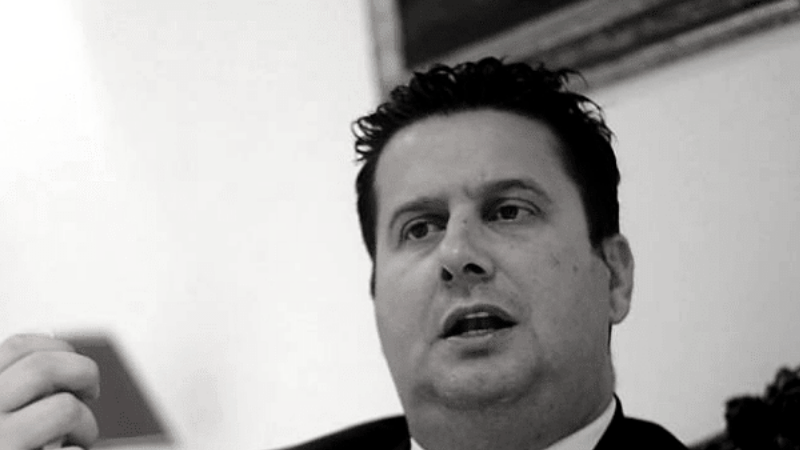As soon as he was appointed Minister for Justice, Equality and Governance, Edward Zammit Lewis, hit – metaphorically speaking, of course – the ground running. 2020 proved to be a demanding year for him, given that he was tasked with implementing the Venice Commission’s recommendations on the rule of law reforms in Malta.
And as luck would have it, the public is able to keep up with the minister’s industriousness over the past year thanks to his numerous contributions in different media outlets in which he repeatedly writes about his ministry’s progress and achievements. What is striking about these articles is not only their frequency but also what is left out of them.
In his latest rose-tinted opinion piece, published on 26 February, outlining once again his many achievements, Zammit Lewis says: “We have also been receiving positive feedback for our reforms from international organisations… In October 2020, the Venice Commission warmly welcomed ‘the implementation of the proposals for legislative reform as an important step in the right direction’. This was confirmed time and again by other established bodies, including the European Commission and Moody’s. Moody’s International has gone to outline that Malta has institutions which are ‘balanced by a very strong governance profile’ ”.
Not quite right
Yes, the conclusion in the opinion submitted by the Venice Commission does indeed say the above but it also says that “the rushed adoption of these important constitutional changes cut short wider consultations in society. Therefore, the Venice Commission cannot but regret that six out of 10 Bills have been adopted before the requested opinion could be finalised.”
The commission was also extremely critical of the procedure adopted by the Maltese authorities and dedicated three pages to its criticism of the government’s attitude.
The European Commission’s first Annual Rule of Law Report also recognised and described the various reforms (implemented or proposed) in/by Malta, but it also highlighted major shortcomings, most notably the lack of convictions for high-level corruption, deep corruption patterns across institutions, and substantial concerns about court proceedings being some of the longest in the EU. It also described how the assassination of Daphne Caruana Galizia led to concerns about freedom of expression and the safety of journalists in Malta.
Curious to know where he read this. Malta was frequently mentioned in the EU rule of law report but never with the adjective ‘best practice’
— Pieter Omtzigt (@PieterOmtzigt) September 30, 2020
In his final report on Malta’s rule of law reforms, the Council of Europe’s Special Rapporteur Pieter Omtzigt concluded that the government’s reform programme remained “unsatisfactory” overall.
The report by Moody’s Investors Service was not made available to the public, but a copy seen by The Shift shows that the “balanced by a very strong governance profile” quote Zammit Lewis is referring to in his opinion piece is taken out of context and has got nothing to do with Malta’s institutions. It is referring to Malta’s ESG credit impact score with the “G” for Governance receiving a positive score thanks to Malta being a part of the EU and the euro area.
Moreover, the credit challenges outlined by Moody’s include “institutional challenges related to the rule of law and control of corruption”. Quite the opposite of what Zammit Lewis is saying. The report goes on to add that evidence of an erosion of institutional strength, in particular in regard to the rule of law and control of corruption, could lead to downward pressure on Malta’s credit rating.
Feedback from local experts
In January this year, the Chamber of Advocates expressed dismay about a Bill on reform of the legal profession to “address recommendations made by Moneyval”, saying it was a diluted version of a more substantive draft agreed between the Chamber and the Minister. The Chamber pointed out that it was “a half-hearted attempt to deal with Malta’s quest to make it through the Moneyval assessment”.
The move was reminiscent of the way the government went about implementing the reforms recommended by the Venice Commission: following an initial consultation, the government then proceeds with a watered-down version of the reform, riddled with loopholes and/or shortcomings in what is now becoming a pattern in the way these “unprecedented” and “swift” reforms are being implemented.
And what about the Unexplained Wealth Orders (UWO) that our minister for justice fiercely opposes against the recommendations of Transparency International? His excuse is that “we do not have a good history on confiscation of assets”. The logic being that since we haven’t implemented existing laws, there’s no need to introduce more.
Now Zammit Lewis is proposing to demolish in one fell swoop the case law of our Constitutional Court on the right to be tried only by judges or magistrates where criminal proceedings are involved, by a back-door amendment – instead of amending the Constitution, he is trying to amend the Interpretation Act. The proposal is being challenged by four leading legal experts.
Perhaps this is why we get a monthly reminder of the minister’s great, amazing, fabulous work because it’s not great and amazing or fabulous after all – it is the bare minimum – and as welcome as some of it is, it appears to be simply ticking enough boxes to make it through the Council of Europe’s Moneyval assessment – the report is soon due.













If MoneyVal does not grey-list us, we are doomed!
I am Maltese, not proud to be one and yes, I wish Malta get what it deserves, Grey Listed!
Those articles are nothing but highfalutin hogwash. But that was his remit.